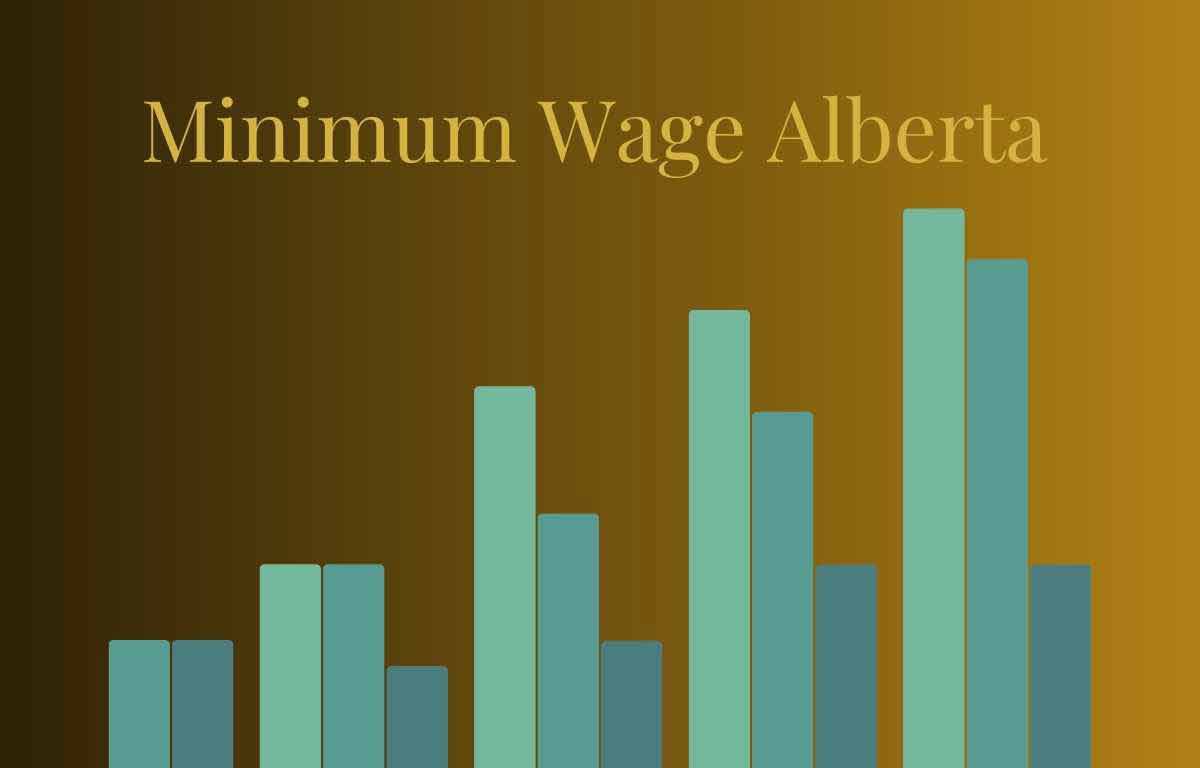The provincial government of Alberta, Canada, determines the minimum wage, which for the majority of workers is $15.00 per hour. The majority of industries and job types are covered by this rate.
It is crucial to remember that minimum wage rates might alter over time as a result of legislative changes or changes in the economy.
These sources offer the most precise and up-to-date details on minimum wage rates and any particular laws or exceptions that might be relevant in the province.

Alberta Minimum Wage
- According to the Employment Standards Code, Alberta’s general minimum wage is currently $15 per hour.
- Domestic workers who reside in the home of their employer are entitled to a monthly minimum wage of $2,848.
Basic Rules about Minimum Wages Alberta
- Employers are required to pay a minimum wage.
- All workers must be paid the current general minimum wage, including those who are under the age of 18.
- Money for expenses or tips is not included in wages.
- Some salespeople and domestic workers are paid different weekly and monthly minimum pay.
- Every time, employees must get at least 3 hours of pay at the minimum wage.
When did Alberta minimum wage increase
- In October 2018, Alberta hiked its minimum wage from $13.60 per hour to $15.
- The minimum wage in this province was raised for the first time in all of Canada.
Employment Standards Rules on Minimum Wage Alberta
- All workers must be paid the current general minimum wage, with the exception of those who are under the age of 18.
- On June 26, 2019, a student wage for job development went into effect. There are constraints.
- Money for expenses or tips is not included in wages.
Domestic Employee Wage Rates Alberta
Minimum hourly wages
- $2,848 per month for domestic workers who reside in the homes of their employers
- Domestic employees who don’t live in their employer’s home are paid $15 per hour.
What is the purpose of minimum wage?
The goal of the minimum wage is to create a legally binding floor for wages so that workers are paid fairly and at least the legal minimum. It gives workers a minimal standard of living and aids in defending them against abusive labour practices.
How often do minimum wage rates change?
Different jurisdictions have different minimum wage increases on a regular basis. While some jurisdictions evaluate and change their minimum wage rates yearly, others may do it less regularly.
The adjustments are frequently made in response to variables including inflation, cost of living, and economic situations.
Also Check: Minimum Wage Manitoba
Job Creation Student Wage Rates Alberta
- For instance, a student who worked 30 hours in a week could be paid as little as $13/hour for the first 28 hours, but the final 2 hours would require payment of at least $15/hour.
- The job creation student wage of $13 per hour is applicable to all regular hours worked when classes are not in session, such as throughout the course of spring break, the holiday season, or the summer break.
Who is eligible for the Student Salary for Job Creation?
- Any student under the age of 18 who attends school up to grade 12 or a post-secondary or vocational institution is eligible for the job creation student salary.
- The job creation student wage is only applicable to students who are currently enrolled in school; it does not apply to kids who are not currently enrolled.
Ref: alberta.ca/minimum-wage.aspx | peninsulacanada.com/blog/employer-advice/alberta-minimum-wage-guidelines/